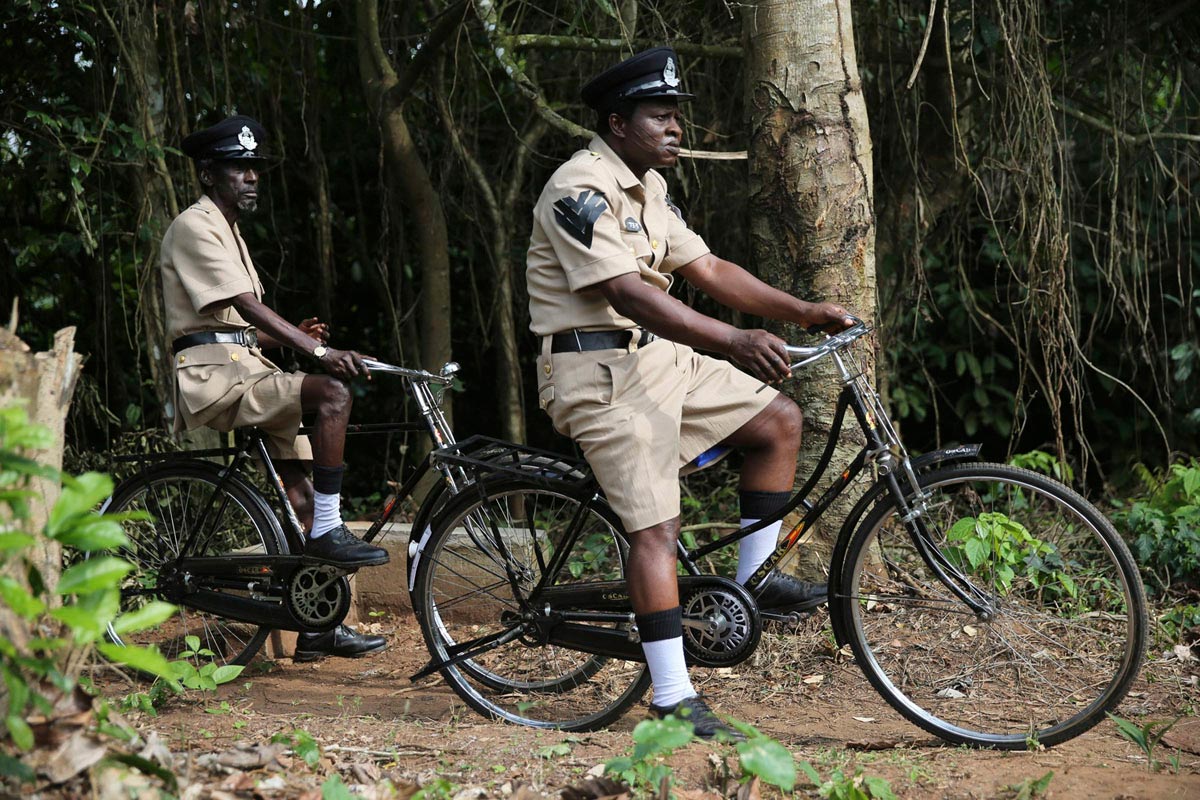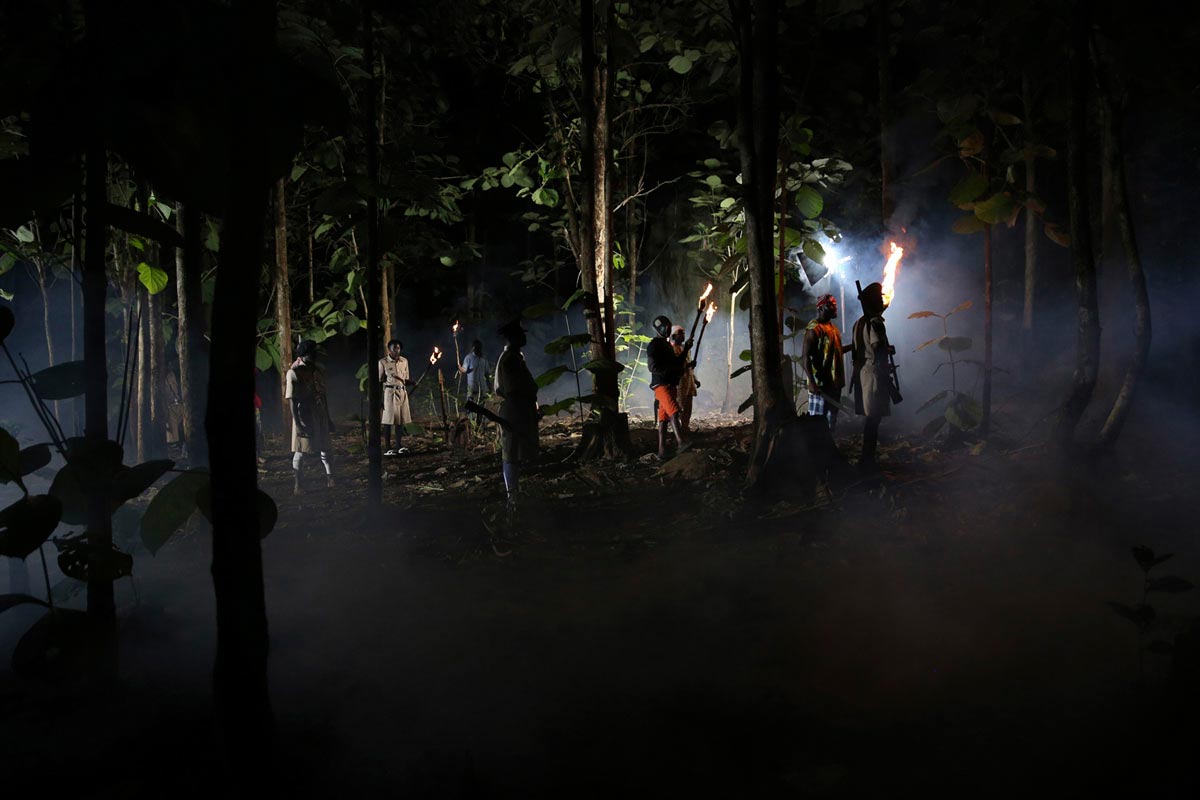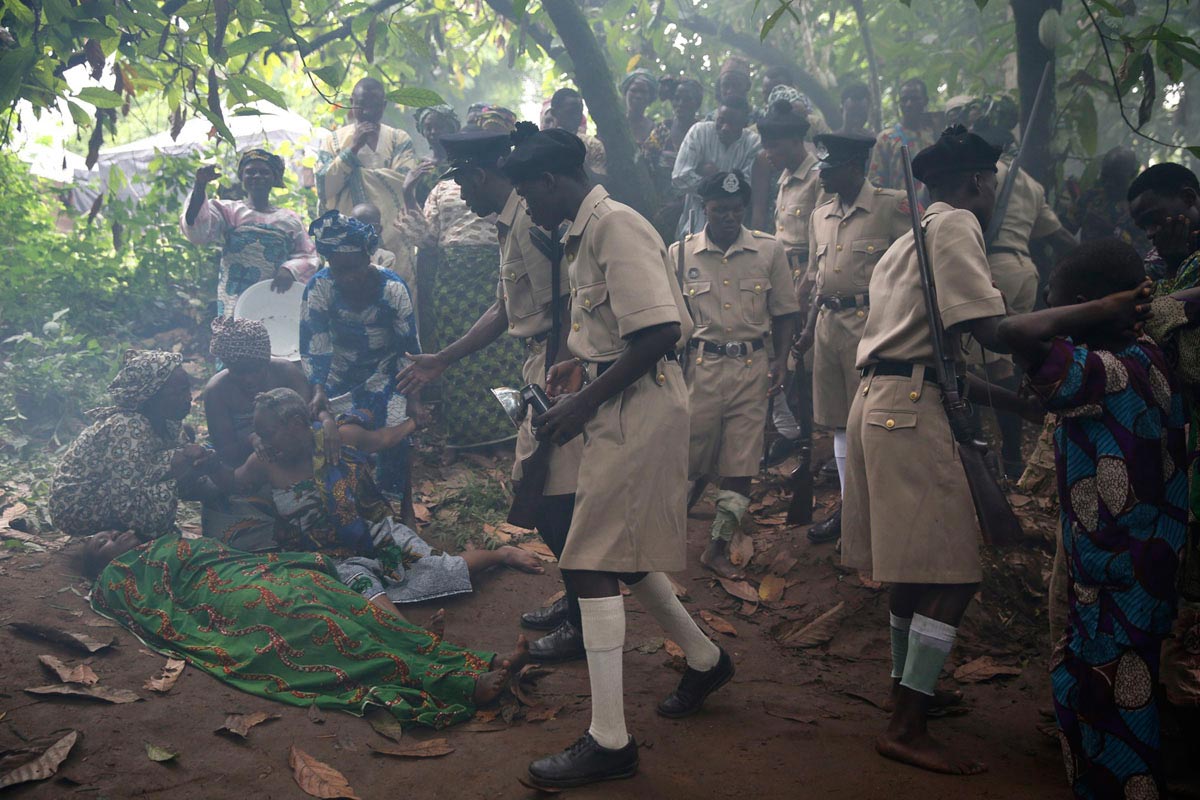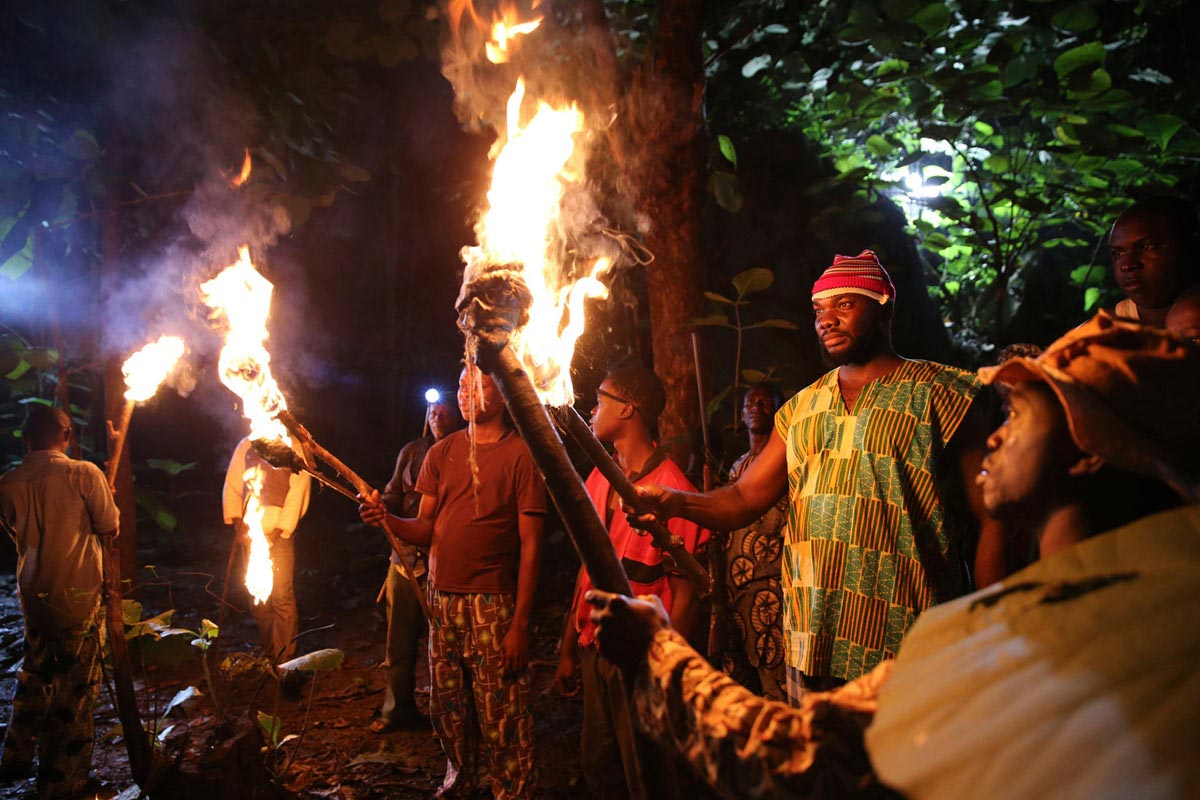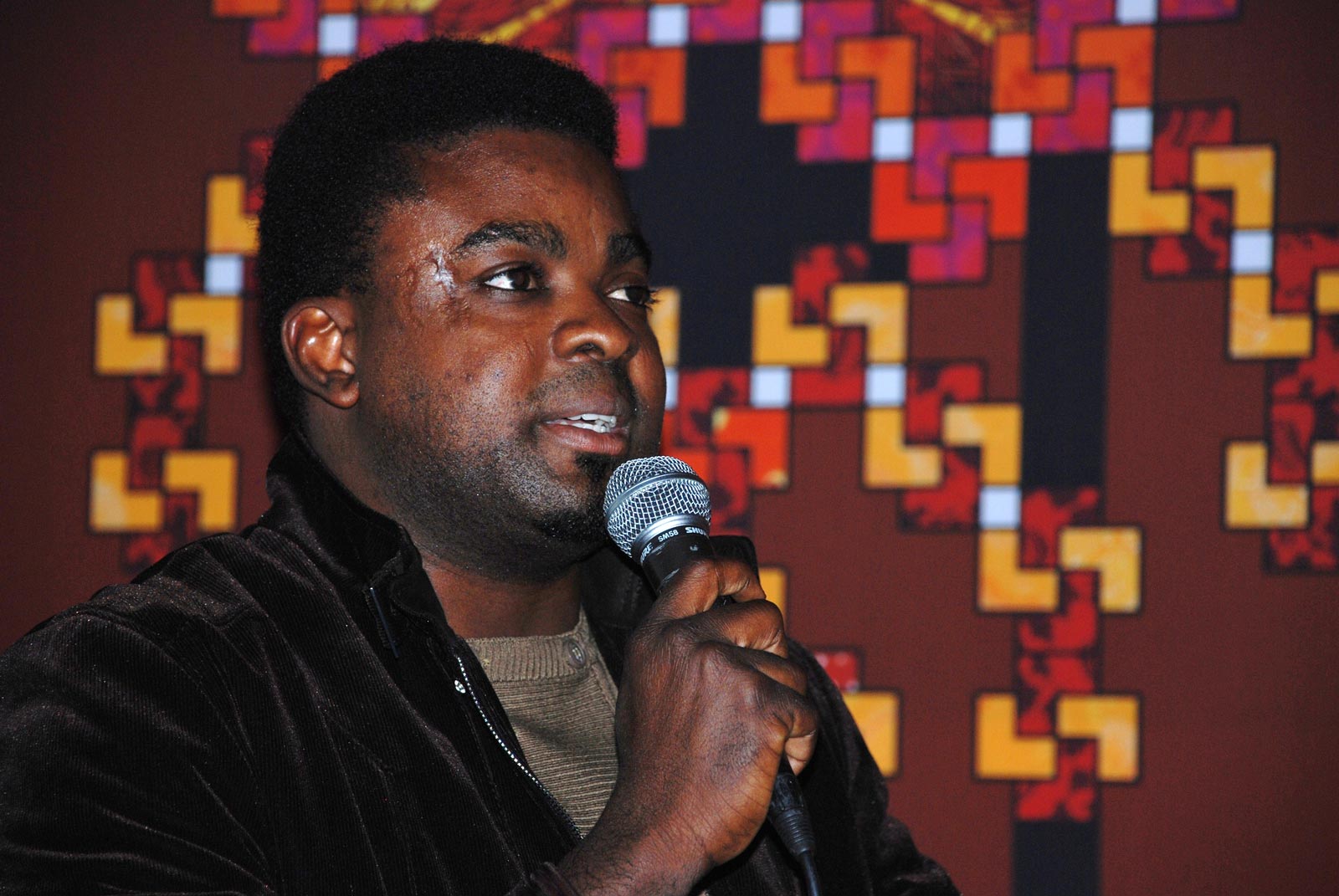It is hard for me to say this, but I have to say it, even though I am not supposed to say it. I read the screenplay of October 1st, written by Tunde Babalola and directed by Kunle Afolayan. This is completely a breach of trust, but the truth is that I am delighted to tell you that Mr. Afolayan’s diligence shines through the realization of the creative ideas onto the screen, translating to what most artists in Nigeria can call the work of a genius. The delivery, the artistic composition of this art work bellies modifications. As a working filmmaker in Nigeria, one is easily demoralized or made to change certain things while in production, for so many reasons, financial or societal. Here, Mr. Afolayan does justice to the true imagination of the screenwriter. The story I read was what I saw.
October 1st is a dark tale, a story of cultures intermingling, a tale about the future and the past, all riddled together. And his choice of cast is something mind bubbling. Not to say much on the beauty of the art, this film about Danladi Waziri (played by the enigmatic Sadiq Daba), a police officer from the Northern part of Nigeria, who is posted to a remote town of Akote in Western Nigeria to investigate the frequent murder cases in the community, is not really about Danladi. You may be forced to believe the synopsis, because it is written by the makers themselves, but one with a sharp-eye can easily figure that the scattered tales of different lives unfold to make this film a tale about many things and many people. It is known that every art work has to be centred on someone; this is why October 1st has decided to focus on Danladi, but then, on the other hand, you will find that the story of Aderopo (played by Ademola Adedoyin) is something one can consider to be what the film is also about. There is also Miss Tawa (Kehinde Bankole), the teacher. One string of the narrative spills through and one can understand why the story is about everything. If the filmmakers can be honest with themselves, October 1st is not about the characters, it is about Nigeria. It is a cultural and anthropological study of the human existence within the hemisphere called Nigeria. Mr. Afolayan handles rape and sodomy like a true genius; no bogus graphic scenes. Mild and subtle. Very artistic.
There is nothing chronological about the storytelling technique applied by Mr. Babalola. His dialogue is crisp and transcends every barricade.
What I found most appealing about October 1st is its genuineness to culture, to this country called Nigeria. Mr. Afolayan incorporates facts into fiction to create an everlasting joy in his work. He is not one who is scared of exploring, he is very busy trying to edge out other artists. And he does so beautifully. He takes his time to create. He takes his time to understand the people he is making films for. No matter how intellectually stimulating October 1st is, it can be enjoyed by anybody, whatever class, tribe or mental stability. It is a story about Igbo people before Independence, it is about Yoruba people, it is about Hausa people. It is the story of Nigeria and Nigeria is the central character of the film and not Danladi. If there is nothing else that works in the film, the infusion of different races and tribes really does the magic. For those who would not want to see October 1st, because they feel The Figurine and PhoneSwap didn’t really whisk them away into the heavens, October 1st is the movie that will convince you that Mr. Afolayan leads the pack of filmmakers in Nigeria.
While reading the script of October 1st, I wanted to see more about Funmilayo Ransome-Kuti, but at the end of the film, I realized that the filmmaker leaving some things untold is because he doesn’t want to sound politically and culturally incorrect. Somehow, the film should have focused more on the people we believe fought for the Independence of Nigeria; if there is a way to summarise October 1st, it would be: Nigeria’s official movie. It details everything about Nigeria, in a very creatively uncanny way and sharpens the veracity of a society torn apart by its tribalism.
Mr. Afolayan’s two brothers are actors. This is aside. They are not in the film. This completely brings to view the fact that the filmmaker is a completely unsentimental artist. He doesn’t use popular faces to sell his ideas. He has done incredibly well bringing back Mr. Sadiq Dabba to the screen. I had seen my first film of Mr. Sadiq when I was 8 years old. His accent, his enunciations are completely charming and this brings to the true beauty of the dialogue.
At the end, one can easily say, Mr. Afolayan’s October 1st is for everyone who loves great films.
Onyeka Nwelue is award-winning author of The Abyssinian Boy (DADA Books, 2009) and Burnt (Hattus, 2014). He’s currently Professor of African Studies and Literature at Instituto d’Amicis, Puebla in Mexico.
The opinions expressed in this article are solely those of the author.

